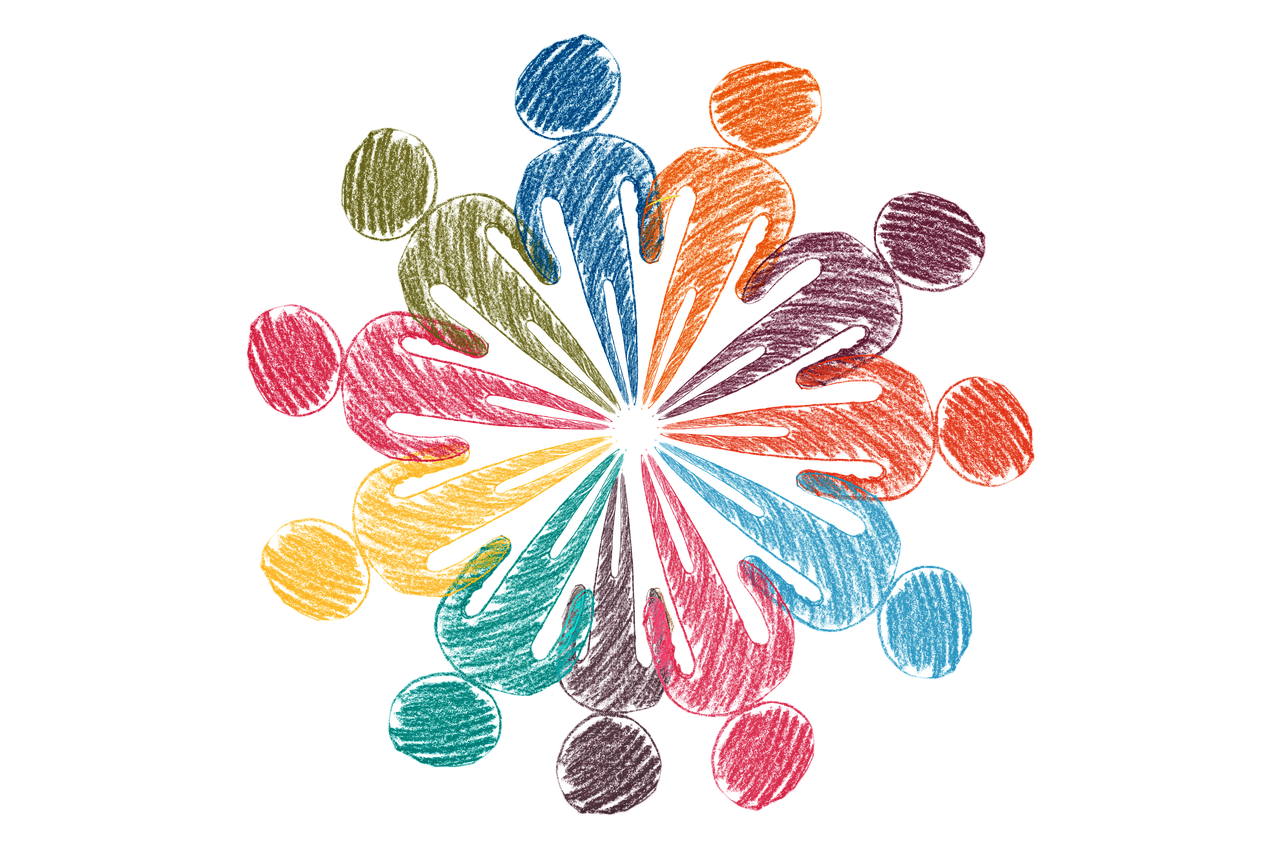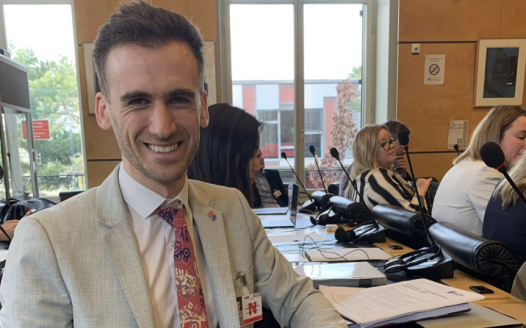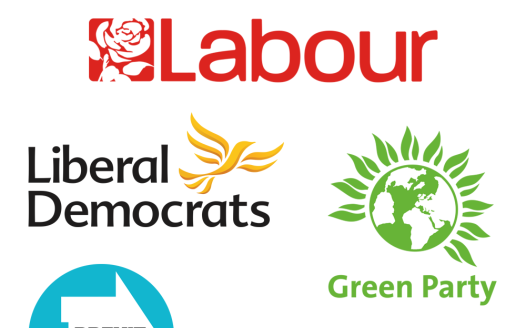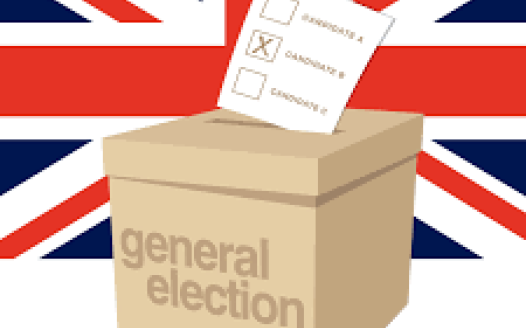How secularism protects people who have religious faith
Posted: Wed, 14th Nov 2018 by Megan Manson
For Interfaith Week 2018, campaigns officer Megan Manson explains how the National Secular Society's work protects those who are religious as well as those who are not.
One of the most common misconceptions about the National Secular Society is that we are an atheist campaigning group. For much of our 150-year history this was indeed the case, but the modern day NSS has changed its focus so it is entirely focused on state neutrality on religion. Today we work towards building a more equal, inclusive and just society based on secularism and on the application of universal human rights. Our members come from across the political spectrum and religious spectrum.
What's more, the NSS actually spends considerable time and resources upholding the human rights of people within faith communities, and working together with members of those communities to fight injustices.
Many of the issues we campaign on are niche areas affecting religious minorities, which have little or no direct impact on people who aren't affiliated with the religion. We care about these issues because secularism is for everyone, regardless of their beliefs or faith background. When people come to us for help (which they do daily), we don't ask them about their religious beliefs. We're just interested in protecting the human rights that we all share.
It's important to respect that those we defend often retain their faith long after losing trust in the religious institutions that have wronged them. But where human rights are being breached, both those of faith and of no faith are equally entitled to secular justice.
In light of Interfaith Week, here's a look of some of the work we've been doing this year to defend the human rights of people in Christian, Muslim, Jewish, Hindu and other faith communities.
Cracking down on 'conversion therapy'
So-called 'conversion therapy' is the pseudoscientific method of trying to turn LGBT+ people heterosexual. Individuals who seek conversion therapy are usually religious. That's because their religious community has taught them that attractions towards people of the same sex are sinful. It becomes a deep source of shame and stigma within their community.
The organisations that offer the 'therapy' are also religious. They prey upon the desperation of individuals who believe that they are suffering an 'affliction', and that this affliction damages their relationship with their community and their God. The 'therapists' can charge a considerable fee for this service.
Conversion therapy doesn't work. Instead, it frequently causes psychological (and sometimes physical) harm to the individual. It is also inherently homophobic, treating same-sex attraction as a disorder rather than the natural preference of the individual.
That's why the NSS has been campaigning against conversion therapy for many years. After we wrote to professional psychological groups asking that they tell their members not to endorse the practice, all major counselling and psychotherapy bodies condemned conversion therapy by signing a Memorandum of Understanding in 2015.
This year perhaps saw the biggest victory yet: a government announcement that it would work to end the practice of 'conversion therapy' in the UK. At our recent Healthcare & Secularism Conference we were delighted to offer a survivor of conversion therapy who is also a member of the general synod of the Church of England a platform to speak about her experiences from a faith perspective. Jayne Ozanne spoke passionately about her journey of self-acceptance, remarking somewhat tongue in cheek, that she seemed had more friends in secularist circles that at the synod.
Ending caste-based discrimination
Another issue that is little-known outside specific faith contexts is that of caste-based discrimination. Found predominantly in Hindu communities, caste systems in the UK have led to discrimination, harassment and bullying in employment, education and in the provision of services.
Equality law exists to protect people from unfair treatment because of certain personal characteristics, such as race or religion. Despite this, there is nothing specific in the Equality Act to deal with caste-based discrimination, even though perceived caste is a characteristic that a person cannot choose.
So the NSS has been working together with anti-caste campaigners both to raise awareness of the issue, and to call for legislation to protect people from discrimination. We criticised the government's decision in July not to incorporate caste into equality law along with the Equality and Human Rights Commission. We will continue to campaign for this unjustifiable form of discrimination to be recognised and outlawed.
Exposing the harm of religious 'courts'
Secularism means there should be one law for all – the laws of the land should treat everyone equally, regardless of religious or cultural background. That's why we're concerned with the proliferation of religious tribunals that actively undermine the justice system, as well as the rights of people 'subject' to them.
A particular concern are 'sharia councils', because there is an evident lack of awareness in some communities that they have no legal authority whatsoever. Muslim women who have migrated to the UK with low English proficiency are especially at risk, because sharia councils can be discriminatory towards women and leave them vulnerable to abusive relationships.
We've been working with equalities campaigners, many of them themselves Muslim women, to prevent sharia councils from undermining human rights and British law. This year we co-signed an open letter co-ordinated by Southall Black Sisters to the Ministry of Justice calling for government advice for women to seek out religious 'courts' and to guarantee access to justice for all.
Free expression for all, including people of faith
Freedom of expression is a fundamental human right that should never be restricted by religious concerns. This is why we campaign so vigorously to abolish blasphemy laws. As recent events have shown, the victims of blasphemy laws are frequently members of a religion themselves.
In October the plight of Asia Bibi brought Pakistan's draconian blasphemy laws to the world's attention. A group of Muslim women refused to share a bowl of water with Bibi because she is a Christian. Bibi challenged them, and following an argument the Muslim women reported Bibi to the local cleric for allegedly insulting Muhammad. A Pakistani court convicted Bibi of blasphemy and sentenced her to death.
The NSS joined other human rights campaigners in defending Bibi, by writing to the Foreign Office and urging it to put pressure on Pakistan to release her. Since then, Pakistan's Supreme Court has ordered Bibi to be freed. Bibi and those who defended her in Pakistan are still in danger, but the court's reversal of her prosecution is a step in the right direction.
Defending survivors of clerical abuse
The campaigns described so far primarily affect adults. But some of our most critical work is standing up for the rights of the most vulnerable people of all in faith communities: infants and children. And it is children who are usually the victims of clerical abuse.
Secrecy, close ties with the establishment, a sense of entitlement and ready access to large groups of young and vulnerable people mean that religious organisations are easy targets for sexual predators. When abuse does occur, the victims can find it extremely hard to get justice; not least because they are usually children. Even in adulthood, survivors of clerical abuse find that powerful religious institutions are well-positioned to cover up their crimes and bully victims into silence. And they are highly motivated to do so in order to protect their reputation.
The NSS has long worked with survivors of clerical abuse, particularly within the Catholic Church and the Church of England. We've assisted the United Nations in its investigations into countries with significant clerical abuse problems. In his capacity as a lawyer representing survivors Richard Scorer, who is also our vice-president, has pushed for a law requiring mandatory reporting at the Independent Inquiry into Child Sexual Abuse.
And we were proud to give the 2018 Secularist of the Year award to Phil Johnson and Rev. Graham Sawyer, who have campaigned on behalf of victims of abuse which took place within the Church of England.
Bodily autonomy for all children
Clerical sexual abuse of children is illegal and universally condemned. But children within religious communities can be harmed in other ways that are not against the law, and that may even be condoned by the state and by large proportions of society. One such form of harm is male circumcision.
In the UK, the practice of non-therapeutic genital cutting in children is almost exclusively found in religious communities. There are no laws protecting boys from this excruciating and permanent form of body modification. Meanwhile, although all forms of genital cutting in girls (FGM) are against the law, there have been no successful convictions for FGM in the UK.
We believe that all children, regardless of gender or religious background, should be entitled to make their own decisions about their bodies. No-one, baby, child or adult, should be subject to non-therapeutic genital cutting without their express consent. That's why we work alongside those raised in Jewish and Muslim communities in campaigning to end religious genital cutting of children, and to raise awareness of this topic which is often poorly understood by those outside the 'cutting communities'. We've been particularly vocal on the issue this year, with NSS representatives appearing on national TV and radio to make the case for children's bodily autonomy.
Proper schooling for children raised in faith communities
We believe that faith should never be a barrier to children's education. While the NSS is perhaps better known for our No More Faith Schools campaign, we also speak out for the rights of children who are being educated within faith schools.
This year, we exposed the distorted relationships and sex education (RSE) that thousands of children are receiving in faith schools across England. We found that RSE lessons in faith schools were teaching that same-sex relationships, contraception and sex outside of religious marriage are wrong. We campaign for all children, regardless of their faith background, to have the right to inclusive and objective RSE, and we have shared our findings and our concerns with the government.
Our campaigns for children's right to a worthwhile education goes beyond the state sector. We've been at the forefront on the crackdown on unregistered, illegal faith schools. Such schools not only fail to provide children with a broad and balanced education; they also fail to safeguard the pupils and may even leave them vulnerable to radicalisation. We've provided evidence to the government to help tackle unregistered schools, including recommending reforms to elective home education which can sometimes be used as a cover for illegal schooling.
Secularism recognises all individuals as human beings with equal rights and dignity. That's why we'll continue to campaign for everyone, no matter what their faith or background, has access to secular justice, secular healthcare, and secular education.
What the NSS stands for
The Secular Charter outlines 10 principles that guide us as we campaign for a secular democracy which safeguards all citizens' rights to freedom of and from religion.











